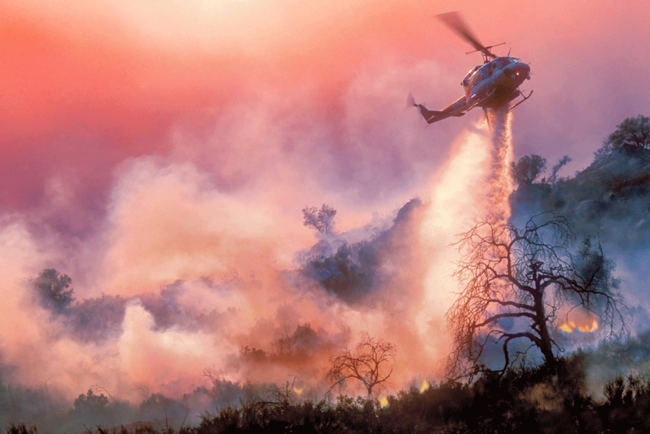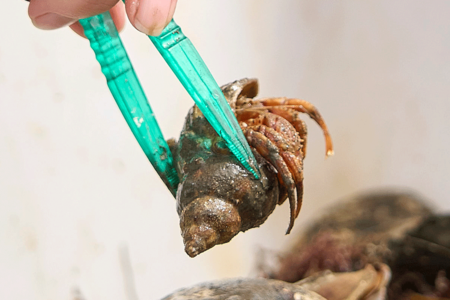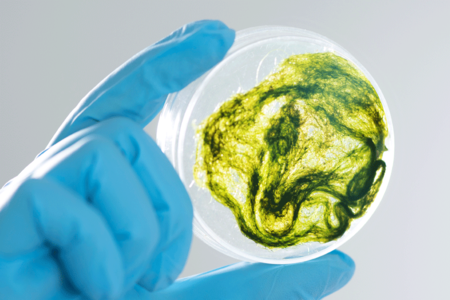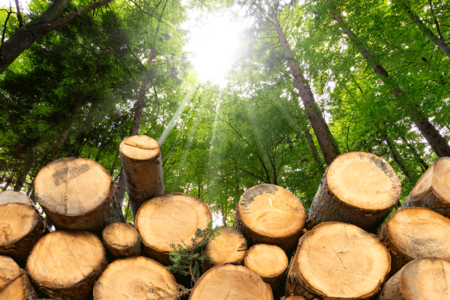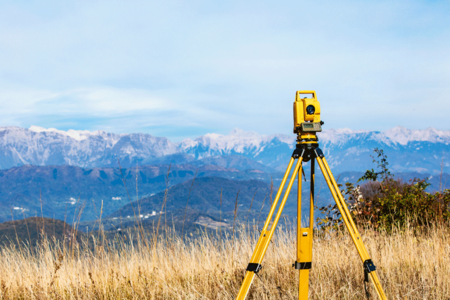About the programme
Combine natural and social science approaches to the study of climate change. With an MSc in Climate Change you will be equipped to take up job functions associated with local, national and international efforts to deal with climate change, one of the currently greatest challenges to modern society. You specialise in either Impacts, Mitigation and Adaption or The Physical Climate System.
What makes the programme at UCPH unique?
This interdisciplinary master’s programme at UCPH combines natural and social sciences to tackle one of the world’s most urgent challenges. You study climate processes, policy, and solutions across scales.Why is this programme relevant?
Climate change affects all aspects of society. This master’s programme equips you to address environmental and societal transformations through knowledge, analysis, and action. Graduates contribute to climate policy, consultancy, and research in both public and private sectors.Considering studying at UCPH this September?
Apply by 15 January if you are an applicant from outside the EU/EEA/Switzerland. Apply by 1 March if you are from the EUAdmission and application
To apply for admission to this master's degree programme, you must have completed a qualifying bachelor’s degree or a similar Danish or international degree programme which is assessed to be relevant. Apply for admission via the application portal.
Below, you can read more about admission requirements and which documents to upload in the application portal.
Academic admission requirements
Here you'll find the different academic requirements depending on which qualifying degree you hold.
You meet all academic requirements if you hold one of the degrees listed below. Learn about when and how to apply. Note, however, that you still need to document that you meet the programme's language requirements.
From University of Copenhagen
- Natural Resources (naturressourcer)
- Food Science (fødevarevidenskab/fødevarer og ernæring)
- Landscape Architecture (landskabsarkitektur)
- Biotechnology (bioteknologi)
- Physics (fysik)
- Chemistry (kemi)
- Biology (biologi)
- Geography and Geoinformatics (geografi og geoinformatik)
- Geology-Geoscience (geologi-geoscience)
If you have a Bachelor’s degree other than those listed above, you must submit additional documentation along with your application so we can evaluate whether or not you meet the admission requirements. Learn about when and how to apply.
If you have a Bachelor's degree, Professional Bachelor's degree or equivalent from Danish or international universities you are qualified for admission if your programme includes the following:
- Curriculum is strongly directed towards topics of climate change (minimum 60 ECTS credits climate change related study elements).
We may also admit applicants who, after an individual academic assessment, are deemed to possess educational qualifications equivalent to those required above.
Qualifying degree and other courses/projects
When we assess whether you meet the admission requirements for the Master's degree program, Danish legislation only allows us to assess your Bachelor's degree. Consequently, you cannot study supplementary courses between Bachelor's and Master's degree programs in order to meet the admission requirements.
If you have passed courses/projects before you complete the qualifying Bachelor's degree, these can be included in the assessment, even though they are not part of the Bachelor's degree program.
- It applies to courses/projects you have taken as single subjects and courses/projects you have taken as part of another study program.
- A maximum of 30 ECTS credits of these courses/projects may be included.
Language requirements
You are required to document that you fulfil the language requirement English B, unless you have a legal right of admission to the programme you are applying for.
Please note that you must have the documentation ready by the application deadline.
Application deadlines
Study start in September
1 March at 23:59
Application deadline for Danish applicants and applicants from within the EU, EEA and Switzerland.
Open for applications from 16 January. You will receive a reply by 10 June.
15 January at 23:59
Application deadline for applicants from outside the EU, EEA and Switzerland.
Open for applications from 15 November. You will receive a reply by 1 May.
How to apply
Choose the category below that fits you and read more about how to apply for admission. You will also find information about application deadlines and documentation on the websites.
Citizen in Denmark, EU EEA or Switzerland
Bachelor’s degree from Denmark
International bachelor’s degree
Citizen in a country outside EU, EEA or Switzerland
Bachelor’s degree from Denmark
International bachelor’s degree
Prioritisation of applicants
If the number of qualified applicants to the programme exceeds the number of places available, applicants will be prioritised to the following criteria:
- Total number of ECTS credits in courses within climate change related study elements
- Grade-point average achieved in qualifying degree
Limitation on second degrees
If you have already completed a Master's degree, please check out the rules concerning a second degree.
| Admission statistics Climate Change 2025 | |
|---|---|
| Admitted (of which have start in February) | 57 (0) |
| Admission distribution (legal right/other) | 0% / 100% |
| Applicants | 334 |
| Age average | 24 |
| Nationality (dk/international) | 30% / 70% |
Programme structure
When you enroll in the Climate Change programme, you must choose between two specialisations in either
- Impacts, Mitigation and Adaption
- or The Physical Climate System.
Regardless of their specialisation, all students begin the programme by following a larger compulsory course, providing a broad overview of both the natural and the social science aspects of climate change. In addition, you follow 1-2 compulsory courses, depending on your specialisation.
During the programme you can select from a wide range of restricted elective and elective courses. All in all this enables you to emphasize the natural science or social science aspects of climate change. You may also use your elective courses to follow other relevant MSc courses, you can do a project in practice, or study abroad.
You will encounter a wide variety of teaching methods. Courses will include web-based learning, lectures, exercises, seminars, excursions and group/project work, and your teachers will be researchers of high international standing within a range of disciplines. A mixture of Danish and foreign students and lecturers on the programme ensures an international focus on climate change.
Do a Project in Practice or Study Abroad
You can use some of your elective courses to do a Project in Practice in collaboration with a company or an organisation. You can also choose to study abroad as part of your programme. Read more here:
Master's Thesis
The last two blocks (thesis 30 ECTS) or three blocks (thesis 45 ECTS) are reserved for thesis work. The thesis can focus on wide range of different climate related topics, such as climate impacts, mitigation, adaptation, biodiversity, economics, sustainability, education or ethical aspects of climate change.
Thesis supervision can be undertaken from any department at the Faculty of Science. It is also possible to carry out the thesis project with an external partner, for example a company, an NGO, or the public sector/municipalities and governmental institutions.
Specialisations
When you enroll in the programme you are required to choose between 2 specialisations. You can read about the specialisations below:
The specialisation is highly interdisciplinary, focusing on both social and natural science aspects of climate change.
45-60 ECTS of restricted elective and elective courses allows you to shape the programme in the direction of your own interests. You can combine courses at different degrees of specialisation with project-oriented work, collaboration with external partners, innovation, and hands-on activities.
The specialisation can be structured in two different ways, depending on the size of your thesis:
Course table, Thesis 30 ECTS
Compulsory courses: 30 ECTS
Restricted elective courses: 37.5 ECTS
Elective courses: 22.5 ECTS
Master's thesis: 30 ECTS
One block each year equals nine weeks of study and 15 ECTS. The table is primarily for guidance and may be subject to revision.
Year 1
| Block 1 | Block 2 | Block 3 | Block 4 |
|---|---|---|---|
| Climate Change: An Interdisciplinary Challenge | Restricted elective course | Restricted elective course | |
| Climate and Society | Elective course | Elective course | |
Year 2
| Block 1 | Block 2 | Block 3 | Block 4 |
|---|---|---|---|
| Elective course | Restricted elective course | Thesis | |
| Restricted elective course | Restricted elective course | ||
Course table, Thesis 45 ECTS
Compulsory courses: 30 ECTS
Restricted elective courses: 30 ECTS
Elective courses: 15 ECTS
Master's thesis: 45 ECTS
One block each year equals nine weeks of study and 15 ECTS. The table is primarily for guidance and may be subject to revision.
Year 1
| Block 1 | Block 2 | Block 3 | Block 4 |
|---|---|---|---|
| Climate Change: An Interdisciplinary Challenge | Restricted elective course | Restricted elective course | |
| Climate and Society | Elective course | Elective course | |
Year 2
| Block 1 | Block 2 | Block 3 | Block 4 |
|---|---|---|---|
| Restricted elective course | Thesis | ||
| Restricted elective course | |||
Restricted Elective Courses
Choose your restricted elective courses from the list below. Click on each course for a detailed description.
- Climate Change and Biodiversity
- Climate Change and Biogeochemical Cycles
- Climate Change and Land Use
- Climate Change and the Law
- Climate Change and Water Resources
- Climate Change Mechanisms and Tipping Points
- Climate Models and Observations
- Climate Solutions
- Paleo-Climatology
- Earth and Climate Physics
- Energy Systems and Climate Mitigation
- Entrepreneurship and Innovation
- Environmental Justice
- Ethics, Environment and Society
- Geoengineering
- Geopolitics of Climate Change
- Global Environmental Governance
- Human Adaptation to Climate Change and Variability
- Introduction to Data Science
- Science and Technology Communication
- The Economics of Climate Change
The Physical Climate System-specialisation touches on all aspects of climate change, but your main focus will be on the physical climate system and climate modelling.
45-60 ECTS of restricted elective and elective courses allows you to shape the programme in the direction of your own interests, for example towards data science, computational climate science, or IPCC related climate modelling.
The specialisation can be structured in two different ways, depending on the size of your thesis:
Course table, Thesis 30 ECTS
Compulsory courses: 30 ECTS
Restricted elective courses: 37,5 ECTS
Elective courses: 22,5 ECTS
Master's thesis: 30 ECTS
One block each year equals nine weeks of study and 15 ECTS. The table is primarily for guidance and may be subject to revision.
Year 1
| Block 1 | Block 2 | Block 3 | Block 4 |
|---|---|---|---|
| Climate Change: An Interdisciplinary Challenge | Restricted elective course | Restricted elective course | |
| Earth and Climate Physics | Climate Models and Observations | Elective course | Elective course |
Year 2
| Block 1 | Block 2 | Block 3 | Block 4 |
|---|---|---|---|
| Elective course | Restricted elective course | Thesis | |
| Restricted elective course | Restricted elective course | ||
Course table, Thesis 45 ECTS
Compulsory courses: 30 ECTS
Restricted elective courses: 30 ECTS
Elective courses: 15 ECTS
Master's thesis: 45 ECTS
One block each year equals nine weeks of study and 15 ECTS. The table is primarily for guidance and may be subject to revision.
Year 1
| Block 1 | Block 2 | Block 3 | Block 4 |
|---|---|---|---|
| Climate Change: An Interdisciplinary Challenge | Restricted elective course | Restricted elective course | |
| Earth and Climate Physics | Climate Models and Observations | Elective course | Elective course |
Year 1
| Block 1 | Block 2 | Block 3 | Block 4 |
|---|---|---|---|
| Restricted elective course | Thesis | ||
| Restricted elective course | |||
Restricted Elective Courses
Choose your restricted elective courses from the lists below. Click on each course for a detailed description.
- Advanced Computational Geophysics
- Applied Statistics: From Data to Results
- Climate Change and Biodiversity
- Climate Change and Biogeochemical Cycles
- Climate Change and Land Use
- Climate Change and Water Resources
- Climate Change Mechanisms and Tipping Points
- Climate Solutions
- Computational Atmosphere and Ocean Dynamics
- Energy Systems and Climate Mitigation
- Entrepreneurship and Innovation
- Ethics, Environment and Society
- Geoengineering
- Geopolitics of Climate Change
- Global Environmental Governance
- Introduction to Data Science
- Paleo-Climatology
- Science and Technology Communication
- Scientific Computing
- The Economics of Climate Change
Programme Curriculum
If you are more interested in the academic content, regulations, and examination requirements, you should consult the curriculum, which serves as the legal foundation for the programme.
There is both a curriculum specific to each degree programme and a general curriculum that applies across the faculty.
Please note that curricula are often revised annually. Any new versions will be published no later than during the spring semester.
Video: Max and Justine talk about the study programme in Climate Change
Career opportunities
Upon completion of the master’s programme, you will obtain the title Master of Science in Climate Change.
During your studies, you develop a solid understanding of complex, interdisciplinary climate change issues, which enables you to propose solutions based on both natural science and the social and environmental science aspects.
Broad-based expertise on climate change is in high demand, and the MSc in Climate Change offers a wide range of job opportunities:
- In governmental agencies and municipalities which develop plans for climate change mitigation and adaptation.
- In consultancy companies carrying out Environmental Impact Assessment, develop, implement or monitor climate change mitigation and adaptation projects.
- In climate change research, teaching and information dissemination.
- In industry, developing environmental and energy technologies.
- In NGOs and international organisations (incl. the UN) involved in climate change impacts assessment, mitigation and adaptation.
Many graduates choose to pursue PhD studies directly after completing their master's degree.
Student life
High quality education in English, a flexible study structure, excellent facilities, an international study environment, attractive and green campus areas, and the opportunity to experience life in Copenhagen, the cool capital of Denmark. These are some of the qualities about studying at Faculty of Science (SCIENCE) at University of Copenhagen that you can expect.
Throughout the year, various social activities are arranged for all SCIENCE students and for international students specifically. These activities include:
- Introduction Days for new students
- A welcome programme for international students
- International dinners, courses, and lectures
- Sports activities such as fun runs or bicycle races
- Career workshops
Students live in residence halls outside campus or share a flat in the Copenhagen area. You will find that the relatively small size of Copenhagen makes it easy to get around, even by bike.
Where Will I be Studying?
The Climate Change programme is primarily based at North Campus.
The University’s North Campus is centrally located. It is home to scientific, pharmaceutical and health science research, and neighbour to the Copenhagen University Hospital (Rigshospitalet), Metropolitan University College, and Fælledparken.
Exciting building activities are going on at the campus areas at the moment, including the construction of a new Natural History Museum. Furthermore, North Campus is part of a coherent district of science, health and interdisciplinarity – Innovation District Copenhagen – which is being developed these years.
You can read more about campus life at the university here:
Here you will find some useful links and videos about student life and housing in Copenhagen, and the welcome programme for international students at Faculty of Science.
- Information about living in Copenhagen – plus practical information on housing, civil registration number, residence permit and more
- General information on student life and studying at University of Copenhagen
- Housing Foundation Copenhagen is an independent entity which assists international students and researchers at University of Copenhagen in finding accommodation. Visit Housing Foundation Copenhagen here
Video: Study Science at University of Copenhagen
Meet Elizabeth and Alex who study at the University of Copenhagen in Denmark. See what it is like to live and study in Denmark.
Video: SCIENCE Welcome Programme
The SCIENCE Welcome Programme is a great way for international students to be introduced to the Faculty of Science at the University of Copenhagen.
Testimonial
Read interviews with a student and graduate from the Master of Science programme (MSc) in Climate Change:
"The programme is in the start-up phase, but I think it is very well thought through", says Emelie Öhlander. She has a Bachelor's Degree in Earth Science from Stockholms Universitet and among the first ones attending the new programme in Climate Change.
Why did you choose Climate Change?
In fact I didn’t find any master programme in Sweden that I found interesting. My sister said, why don’t you look at University of Copenhagen? So I looked around at the website, and then I found this master programme.
What exactly were you looking for?
I studied Earth Science (Geoscience) in Stockholm, but I lack knowledge in chemistry for instance, and that limits the possibilities a bit. So I was looking for a combination of science and politics.And I think Climate Change has a good interdisciplinary science.
I can read the courses and do a good job, even though I lack some of the basic knowledge in chemistry for instance. You can learn it along the way. And as I haven’t studied so much politics, here you can address such subjects as economic impacts and how governments work, and I think that’s crucial as well, when you are working with climate change.
You can choose between a series of courses, can’t you?
We have 14 courses to choose from in the Climate Change programme. And on top of that we can have some elective courses to choose from in Denmark, or in the rest of the world, as well.
And the combination defines what kind of graduate you end up being?
Yes, we have three profiles. You can have a general one if you can’t decide, a natural science profile which is more based in natural subjects, like what is happening to the elements, and then you have the social science profile where you focus more on economics and political views on climate change.
One of the reasons I started to study science was that I saw that environmental problems would be more severe in the future. It was worrying. I think we humans need to wake up and be responsible for our actions. We can’t just live off the earth, we have to live with it and have a sustainable society. Now I know a lot of the processes, so I can start to specialise more in climate change and learn more about that.
How is the workload?
It’s different from the bachelor. Here you start quite smoothly, but now it starts to build up. They anticipate that you do more than on the bachelor – and that’s how it should be. For this semester it is more group work than individual assignments. And then you have to read too of course.
How many hours a week?
I think I do more than 40 hours – definitely. I had a student job in Stockholm for every other weekend, and I’m so relieved I don’t have to work here, because I feel I don’t have the time. A lot of Danes are studying and working at the same time, they seem to manage, but I think it’s nice to have one day off in the week. But you have an evenly distributed workload over the year.
What do you think of the university and the facilities?
I think it’s really good. It’s nice the libraries are distributed all over Copenhagen, so you don’t have to go so far to find one. The facilities at the libraries are really nice. At Frederiksberg Campus for example, you have free copy prints, and that’s really good for the students.
What do you think of the city?
I love it. Except for London I’ve never loved a city that much as Copenhagen. I like the biking culture. The people actually care here. It seems like the Copenhageners are quite aware of climate changes, and Denmark as a whole do a lot of things for research and adaptation measures. And the people here are really nice and friendly. The main problem here is the Danish …
The Danish people?
Haha … no, the Danish language. I’m starting to learn. I’ve applied for a Danish course for Scandinavians, so I can learn it faster.
You come from a foreign country and have to learn to know a lot of new people very fast. How’s the social life going?
We had two weeks introduction for internationals in the end of august, where you had classes on “how to be a Dane” … learning how to get the CPR-number (personal registration number) and bank account etc. During these weeks we met each other, we had a round tour of the university, and a treasure hunt with the programme.
That was really good because then you get to know somebody. I actually still see some of the students I met at the course. So the international students got to know each other before we started the actual course.
So you were ahead of the Danish students when you started?
Definitely. I think they went like “Oh, they already know each other!” Haha … But the class is really nice and because we are so relatively few, everyone is talking to everyone and we do stuff together all the time. We often have weekly meet-ups with partying or with international dinners.
I’ve never been to a programme where the students has acclimatised so fast. Everyone here is like “Oh, you are new here. Call me if you want to ask something, or …” They are really helpful.
What kind of job would you like to end up having?
My main goal? To work at the UN with climate change issues like adaptation - or trying to address what is going to happen and try to educate people. Policy making or campaigns – that’s what I have been seeing myself doing. I would like to work globally.
After graduation Emelie worked as a consultant on sustainable development at NIRAS in Denmark. She now works as a Climate Action Program Manager at Ericsson in Sweden.
Contact student guidance
Questions about study choice and admission
Our student guidance are ready to assist you with answers to your questions about:
- application procedure and the digital application portal
- admission- and language requirements
- documentation
- study life
- career opportunities
- study choice or doubts
Did you not find what you were looking for?
You can find answers to questions most often asked by potential students in the FAQ. Read the FAQ
Questions about the digital application-portal?
Do you have questions about digital application? Check our user guide to the application portal.
In case of technical problems, please contact the IT-support by
- Mail: it-service@adm.ku.dk // Tel: +45 35 32 32 32
Location
- Frederiksberg Campus, Thorvaldsensvej 40, DK-1871 Frederiksberg.
- North Campus, Universitetsparken 5, DK-2100 København Ø.
